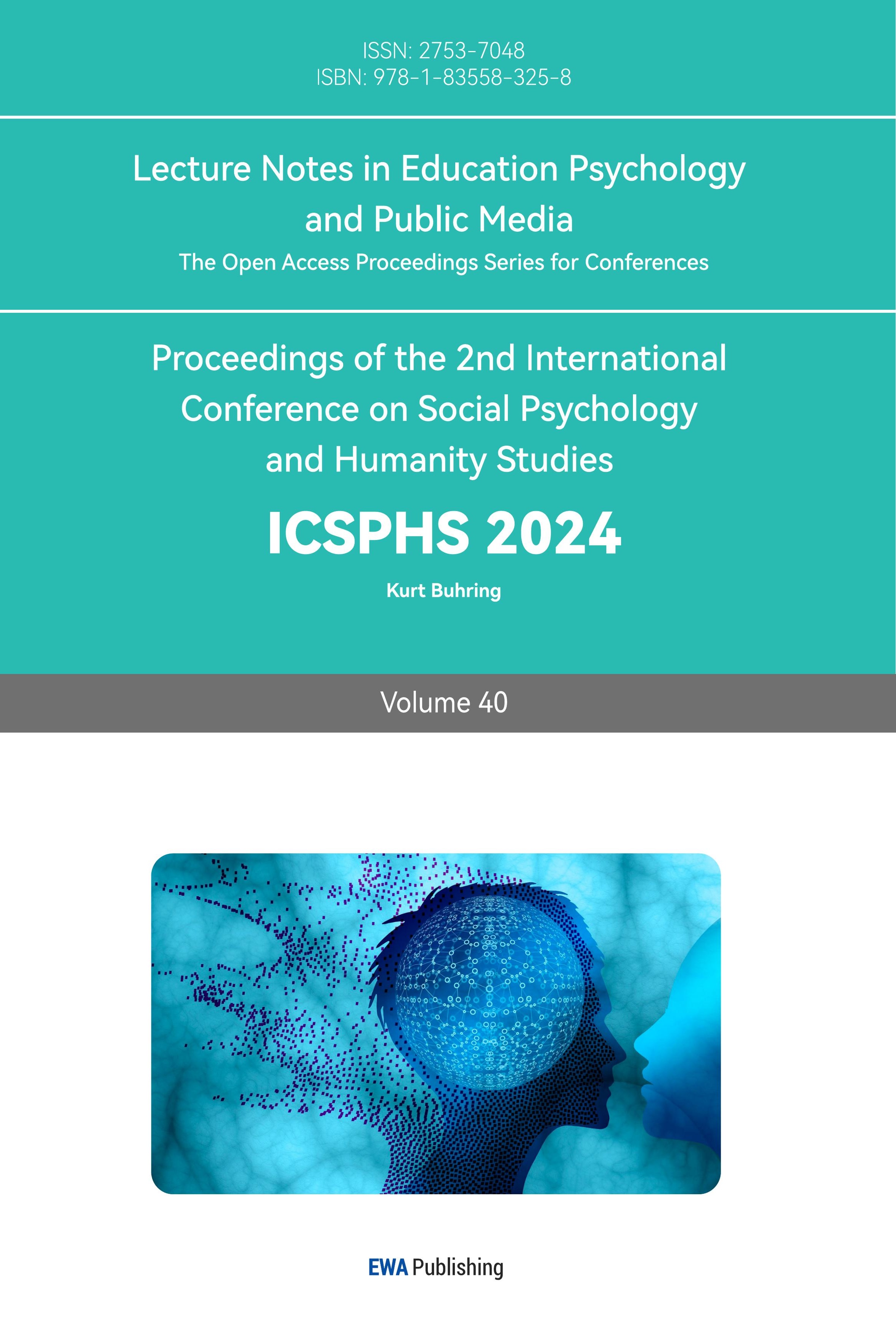Retraction Agreement
Retraction Agreement
*This agreement is the official document for the retraction application supported by EWA Publishing.*
Notes:
• The retraction application should be approved by all authors listed in the published article.
• The retraction process is entirely irreversible and permanent. Authors may not withdraw the retraction once the agreement has been executed (14 days after receiving the retraction application).
• The Statement of Retraction will be displayed on the publication website, replacing the previous published article. The previous published article will be linked with a revised title of “RETRACTED ARTICLE: [article title]”. All author information will be retained in the new link.
• The retracted article should not be submitted to any publications operated by EWA Publishing.
• No refunds will be issued.
If, after carefully reading the above notes, you confirm to proceed with the retraction application, please complete the form below to initiate the retraction process:
Retraction Application Form | |
Title of article | Ethics in the Age of AI: Research of the Intersection of Technology, Morality, and Society |
Name of journal/proceedings | Lecture Notes in Education Psychology and Public Media |
Name of volume | LNEP Vol.40 |
Article DOI | 10.54254/2753-7048/40/20240816 |
Name of author(s) (in order) | Kelin Pan |
Name of corresponding author | Kelin Pan |
Affiliation of corresponding author | Sheffield of University |
Email of corresponding author | kpan4@sheffield.ac.uk |
Reasons of retraction(this part will be displayed in the Statement of Retraction on the publication website) | Personal reasons |
Please read the information below |
If the retraction is disputed by the author(s): This article will not be retracted unless all authors agree to this retraction agreement. If the retraction is disputed by the publisher: This article will not be retracted until the author(s) receives the retraction notification. Authors have the right to contest the retraction. The article will not be retracted within 14 days of receiving the application, and the authors can contest the retraction during this period. Once the article’s retraction has been executed: The retraction will not be reversed. The retracted article will not be accepted by any electronic or physical publications of EWA Publishing; It is the author’s responsibility to be aware of the information above. |
The author has read all of the information above and agreed with this retraction. Yes√ No☐ |
The hand-written signatures of all authors:
Date: 2024/3/6
|

*EWA Publishing reserves the right of final interpretation of this agreement. |

References
[1]. Casas-Roma, J., Conesa, J., & Caballé, S. (2021). Education, ethical dilemmas and AI: from ethical design to artificial morality. In International Conference on Human-Computer Interaction (167-182). Cham: Springer International Publishing.
[2]. A., & Kamal, M. (2021). Ethical Dilemmas in AI-Powered Decision-Making: A Deep Dive into Big Data-Driven Ethical Considerations. International Journal of Responsible Artificial Intelligence,11(8), 1-11.
[3]. Ma, L., Zhang, Z., & Zhang, N. (2018, July). The ethical dilemma of artificial intelligence and its research progress. InIOP conference series: materials science and engineering (Vol. 392, No. 6, p. 062188). IOP Publishing.
[4]. Hagerty, A., & Rubinov, I. (2019). Global AI ethics: a review of the social impacts and ethical implications of artificial intelligence. 1907.07892.
[5]. Bankins, S., & Formosa, P. (2023). The ethical implications of artificial intelligence (AI) for meaningful work.Journal of Business Ethics, 1-16.
[6]. Safdar, N. M., Banja, J. D., & Meltzer, C. C. (2020). Ethical considerations in artificial intelligence.European journal of radiology,122, 108768.
[7]. Hancock, J. T., Naaman, M., & Levy, K. (2020). AI-mediated communication: Definition, research agenda, and ethical considerations. Journal of Computer-Mediated Communication,25(1), 89-100.
[8]. Torresen, J. (2018). A review of future and ethical perspectives of robotics and AI. Frontiers in Robotics and AI,4, 75.
[9]. Colther, C. (2021, November). The risks of AI and ethical considerations from the Human Scale Development approach. In2021 40th International Conference of the Chilean Computer Science Society (SCCC)(pp. 1-5). IEEE.
[10]. Huriye, A. Z. (2023). The Ethics of Artificial Intelligence: Examining the Ethical Considerations Surrounding the Development and Use of AI. American Journal of Technology,2(1), 37-44.
[11]. Rayhan, S. (2023). Ethical Implications of Creating AGI: Impact on Human Society, Privacy, and Power Dynamics. Artificial Intelligence Review.
[12]. Stahl, B. C., & Stahl, B. C. (2021). Ethical issues of AI. Artificial Intelligence for a better future: An ecosystem perspective on the ethics of AI and emerging digital technologies, 35-53.
Cite this article
Pan,K. (2024). RETRACTED ARTICLE: Ethics in the Age of AI: Research of the Intersection of Technology, Morality, and Society. Lecture Notes in Education Psychology and Public Media,40,260-262.
Data availability
The datasets used and/or analyzed during the current study will be available from the authors upon reasonable request.
Disclaimer/Publisher's Note
The statements, opinions and data contained in all publications are solely those of the individual author(s) and contributor(s) and not of EWA Publishing and/or the editor(s). EWA Publishing and/or the editor(s) disclaim responsibility for any injury to people or property resulting from any ideas, methods, instructions or products referred to in the content.
About volume
Volume title: Proceedings of the 2nd International Conference on Social Psychology and Humanity Studies
© 2024 by the author(s). Licensee EWA Publishing, Oxford, UK. This article is an open access article distributed under the terms and
conditions of the Creative Commons Attribution (CC BY) license. Authors who
publish this series agree to the following terms:
1. Authors retain copyright and grant the series right of first publication with the work simultaneously licensed under a Creative Commons
Attribution License that allows others to share the work with an acknowledgment of the work's authorship and initial publication in this
series.
2. Authors are able to enter into separate, additional contractual arrangements for the non-exclusive distribution of the series's published
version of the work (e.g., post it to an institutional repository or publish it in a book), with an acknowledgment of its initial
publication in this series.
3. Authors are permitted and encouraged to post their work online (e.g., in institutional repositories or on their website) prior to and
during the submission process, as it can lead to productive exchanges, as well as earlier and greater citation of published work (See
Open access policy for details).
References
[1]. Casas-Roma, J., Conesa, J., & Caballé, S. (2021). Education, ethical dilemmas and AI: from ethical design to artificial morality. In International Conference on Human-Computer Interaction (167-182). Cham: Springer International Publishing.
[2]. A., & Kamal, M. (2021). Ethical Dilemmas in AI-Powered Decision-Making: A Deep Dive into Big Data-Driven Ethical Considerations. International Journal of Responsible Artificial Intelligence,11(8), 1-11.
[3]. Ma, L., Zhang, Z., & Zhang, N. (2018, July). The ethical dilemma of artificial intelligence and its research progress. InIOP conference series: materials science and engineering (Vol. 392, No. 6, p. 062188). IOP Publishing.
[4]. Hagerty, A., & Rubinov, I. (2019). Global AI ethics: a review of the social impacts and ethical implications of artificial intelligence. 1907.07892.
[5]. Bankins, S., & Formosa, P. (2023). The ethical implications of artificial intelligence (AI) for meaningful work.Journal of Business Ethics, 1-16.
[6]. Safdar, N. M., Banja, J. D., & Meltzer, C. C. (2020). Ethical considerations in artificial intelligence.European journal of radiology,122, 108768.
[7]. Hancock, J. T., Naaman, M., & Levy, K. (2020). AI-mediated communication: Definition, research agenda, and ethical considerations. Journal of Computer-Mediated Communication,25(1), 89-100.
[8]. Torresen, J. (2018). A review of future and ethical perspectives of robotics and AI. Frontiers in Robotics and AI,4, 75.
[9]. Colther, C. (2021, November). The risks of AI and ethical considerations from the Human Scale Development approach. In2021 40th International Conference of the Chilean Computer Science Society (SCCC)(pp. 1-5). IEEE.
[10]. Huriye, A. Z. (2023). The Ethics of Artificial Intelligence: Examining the Ethical Considerations Surrounding the Development and Use of AI. American Journal of Technology,2(1), 37-44.
[11]. Rayhan, S. (2023). Ethical Implications of Creating AGI: Impact on Human Society, Privacy, and Power Dynamics. Artificial Intelligence Review.
[12]. Stahl, B. C., & Stahl, B. C. (2021). Ethical issues of AI. Artificial Intelligence for a better future: An ecosystem perspective on the ethics of AI and emerging digital technologies, 35-53.










